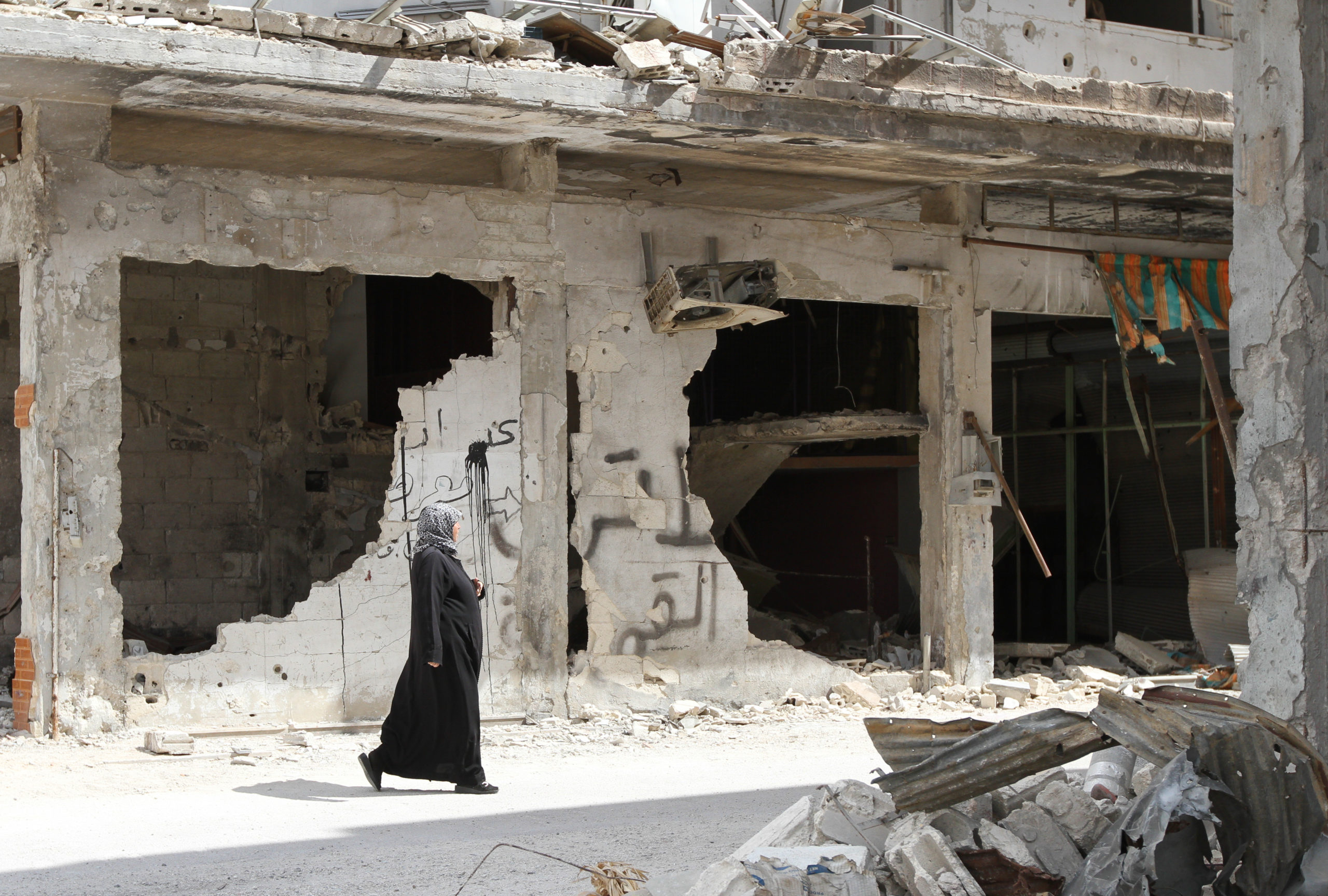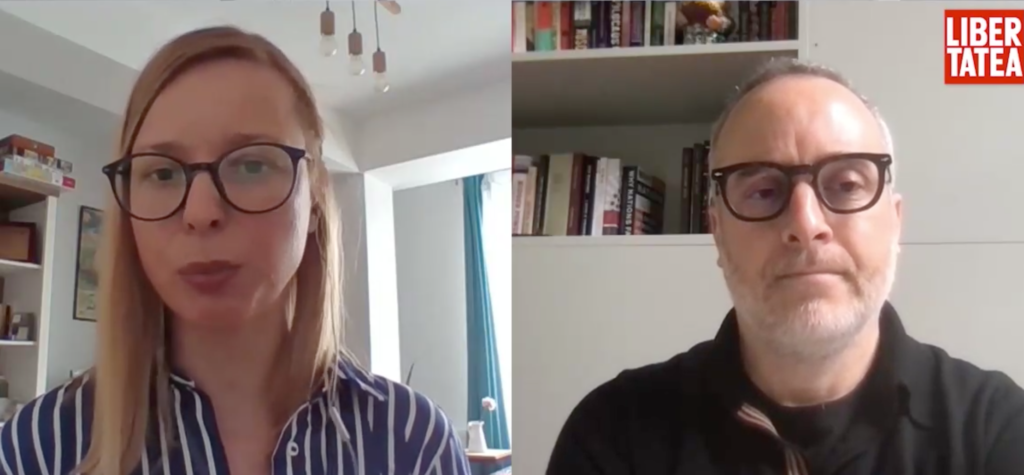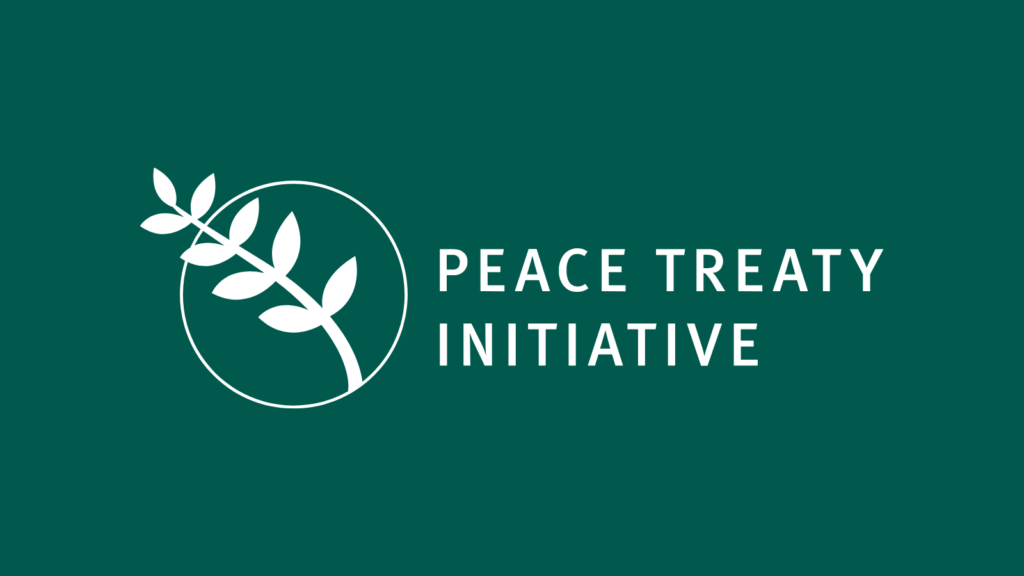Public Commentary / 28 February 2022
Here is a way for international law to better help end conflicts

The reality of war is back in the heart of Europe. This makes it all the more important to talk about peace – which means making the choice of negotiation more attractive, more organised and more flexible. After more than three years of research, the Institute for Integrated Transitions (IFIT) has launched the Peace Treaty Initiative. In a series of three articles, contributors close to the initiative disclose for Justice Info their ideas to revitalize the debate on how to achieve peace and justice.
Today, conflict resolution efforts are facing one of the most challenging climates since the end of World War II. Civil wars and insurgencies have proliferated around the globe and violent extremism continues to rise despite more than twenty years of global efforts to combat terrorism. The past decade especially has witnessed grave violations of international humanitarian law and massive human atrocities, with perpetrators feeling an increased sense of impunity.
At the same time, the world is passing through a period of inconclusive wars. Long-gone is the era of clear victory and defeat. Also, while interstate wars have declined, intrastate armed conflicts have sharply risen. Although disputes between countries persist – and the current conflict regarding Ukraine is a reminder of their global dangers – they are generally less likely to escalate to interstate wars. Meanwhile “grey zone warfare” and cross-border meddling are ascending.
While the last century’s great wars resulted in setting international rules to regulate conduct during conflicts, and significantly advanced international law (especially IHL), international norms around conflict – and the institutions meant to face them, particularly the UN Security Council – have fallen devastatingly short in resolving conflicts. This trend could deepen in the context of the evolving great-power competition.
A reframing effort of such norms is overdue. The world needs a legal instrument to aim at encouraging and supporting peace negotiations for the peaceful settlement of internal armed conflicts.
The Middle East: Nexus of the World´s Challenges
The Middle East has the dubious distinction of hosting some of the world´s most persistent and dire conflicts and crises. It is home to the Israeli-Palestinian conflict, one of the most enduring struggles. The UN Secretary General declared the situation in Yemen to be the world’s worst humanitarian crisis with 80% of the country’s population in need of humanitarian assistance and protection. Meanwhile, Syria has by far the largest forcibly displaced population worldwide: 6.6 million refugees and more than 6 million internally displaced people, constituting around half the Syrian population. The conflict in Libya is characterised by a weak government, a constellation of militias, and a political class in which many are not only backed by foreign governments but also divided across ideological and tribal lines. Meanwhile, Tunisia, Sudan, Lebanon, Algeria, and Iraq are facing varying degrees of instability and civil strife. The Iranian nuclear file and Iranian policies are also a source of major tension and instability in the region.
Today, not a single conflict in the Middle East is on a solid path towards a political solution. A series of UN peace envoys have come and gone to no avail, while several of the parties involved continue to pay lip service to political settlements but act in a manner more consistent with a military solution. The polarisation witnessed in the region, with different countries supporting opposing parties in conflicts, is making it exceedingly difficult to achieve political settlements.
There are also fears that international and regional fatigue may result in a situation whereby the main players would be satisfied with transforming many of these conflicts into never-ending low intensity conflicts with dire implications for the future of regional stability.
Furthermore, in the wake of the first wave of the Arab revolutions that started in 2010 in Tunisia, followed by Egypt, Syria, and Yemen, there were countries in the region that supported these revolutions and others that considered them a great threat to their own stability. A second wave erupted with similar complications. Despite Lebanon and Iraq witnessing up close the near-total destruction of Syria, the Lebanese and Iraqi people still launched their own wide-scale protests. Similarly, the Sudanese and the Algerians took to the streets, undeterred by the neighbouring chaos in Libya and the challenges facing Egypt. This may not be the end: the outbreak of a third wave of revolutions should not be excluded.
The absence of justice, rule of law and good governance help explain these public uprisings. For the most part, and with few exceptions, the region has been moving in the wrong direction. This is the case in almost every area – from conflict resolution to democracy, human rights, social cohesion, and economic and social development – and there are no signals that this trend is going to be meaningfully reversed in the foreseeable future.
International Rules for Peace Negotiation
One of the initiatives that can partly help the region in dealing with the absence of rule of law in conflict resolution is the Peace Treaty Initiative, the aim of which is to bring about a unique multilateral treaty on peace negotiations. Already there is an indicative text of the treaty, which is now the subject of an inclusive consultation process involving governments, multilateral organisations, academia, faith-based entities, NGOs and think tanks from around the world.
The guiding motivation and premise behind the text is that the international system needs a set of rules and legal instruments to incentivise and support conflicting parties and other relevant actors toward accepting negotiations as a critical means to achieving peace in intrastate conflicts and prevent the prolongation of suffering and atrocities before they become protracted conflicts.
The indicative text does not impose negotiations on states, neither does it reduce the flexibility or confidentiality that negotiating parties require. Indeed, the parties maintain control over all decisions, including the content of any accord.
The participation of non-state armed groups in negotiations may result in some form of recognition. However, the indicative text does not confer any form of legitimacy on them or alter their legal status. Instead, it provides a support mechanism and a system for the validation of the key choices made by the negotiating parties – for example, through conferring a presumption of conformity with international law if a peace agreement meets certain criteria.
The indicative text is only a starting point and even as it undergoes changes it will never constitute a silver bullet for conflict resolution. Visionary leadership and political will, for example, are almost always a necessary ingredient in achieving a peaceful settlement of conflicts. But advancing the Peace Treaty Initiative is a much-needed undertaking.
The global picture of conflict resolution is rather gloomy, especially in the Middle East. Priority should be given to new ideas for terminating endless wars and conflicts and ending the suffering of tens of millions of people. The external shock of Covid-19 should have provided the motivation and heightened the urgency to explore every possible avenue to end conflicts, but unfortunately has not. If leaders do not deliver on the hope for peace, stability, and development, this not only will feed extremism, but will result in the eruption of one violent upheaval after another.
The advancement of international criminal law, despite the challenges faced, has been a positive development. It owes its success to European leadership. There is hope that the Peace Treaty Initiative could lead to a dialogue on how international law can go further and contribute to resolving conflict in a more effective manner. Modest as this may be, the initiative is a constructive first step in the right direction on the long road to advance rule of law in conflict resolution.
Originally published in Justice Info as part of a series of three articles on IFIT´s Peace Treaty Initiative.
You may also be interested in

Public Commentary
Interview with Mark Freeman in Libertatea: Negotiations between Russia and Ukraine

Public Commentary
Getting back to what matters: Victim voices and the making of international law

Public Commentary
Negotiating amnesties, peace and justice: a new path


